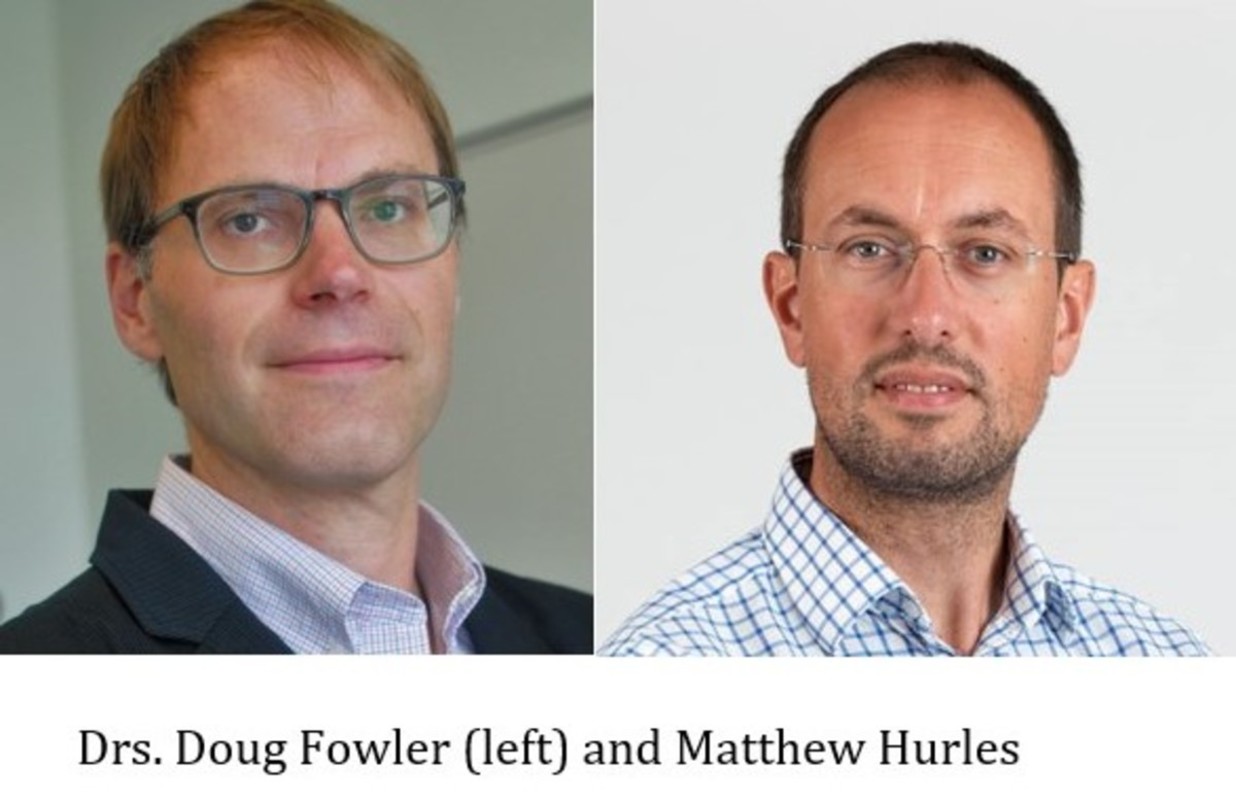 '(W)e seek to realise the potential of genomics to transform the lives and livelihoods of those affected by disease'
'(W)e seek to realise the potential of genomics to transform the lives and livelihoods of those affected by disease'
During 2023, the Atlas of Variant Effects Alliance grew its membership by 25 percent over 2022 and saw its influence expand significantly through symposia and online communications, including an entire edition of a peer-reviewed journal dedicated to Multiplex Assays of Variant Effect.
“It was a year of unprecedented progress toward our goal of a comprehensive atlas of variant effect maps of all segments of DNA that are of biomedical relevance to assist in the diagnosis, prognosis, and treatment of disease,” wrote Drs. Matthew Hurles and Doug Fowler, co-chairs of the Alliance’s Executive Committee, in the organization’s 2023 annual report.
The 27-page report notes that the Alliance now has more than 500 members representing 39 countries. These individuals include early and mid-career scientists, as well as those in senior-level positions in industry, government, and academia, as well as foundations and patient advocacy groups – a total of more than 250 institutions. The overwhelming majority (80 percent) serve in the academic sector.
Several Alliance members contributed several articles in a special collection of the peer-reviewed journal Genome Biology in July of 2023. The articles covered a wide range of challenges and opportunities of creating a comprehensive atlas of variant effects.
Another highlight for the Alliance was the Variant Effects Seminar Series, a monthly, one-hour presentation for early career scientists sharing research related to interpreting human genetic variation. One session, “Disease Variant Predictions with Deep Generative Models of Evolutionary Data,” presented by Jonathan Frazer and Mafalda Dias of the Centre for Genomic Regulation, in Barcelona, has totaled more than 1,000 views.
In July of 2023, the Alliance hosted the sixth annual Mutational Scanning Symposium, held at the Wellcome Genome Campus in the UK. The two-day program included a keynote lecture by Frederick (“Fritz”), as well as 28 invited talks. Over two days, experts in the fields of functional genomics, protein science, precision medicine, variant interpretation, and computational genetics convene to present their work, discuss new methods, and provide insights into the future of genome science.
More than 400 people from 50 nations participated – 217 in-person and 190 virtually . Among the sponsors of the symposium were: the Chan Zuckerberg Initiative, Illumina, Abcam, Ambry Genetics, AstraZeneca, Congenica, and the Brotman Baty Institute for Precision Medicine. At the end of the symposium, it was announced that the seventh annual symposium will be held in May at the Broad Institute in Cambridge, Massachusetts. Moreover, the location of the 2025 symposium has been determined: the Institute for Bioengineering of Catalunya in Barcelona.
Looking ahead, in 2024, Alliance member Alex Nguyen Ba is expected to launch a podcast on rare diseases and ways the Alliance’s work may eventually have clinical application for treat rare diseases. Ba is an assistant professor at the University of Toronto. Also, the Alliance has created a LinkedIn page to complement its website and other communications.
“We all have much to look forward to in 2024 and beyond, as we seek to realise the potential of genomics to transform the lives and livelihoods of those affected by disease,” wrote Drs. Hurles and Fowler in the 2023 report’s introduction.


